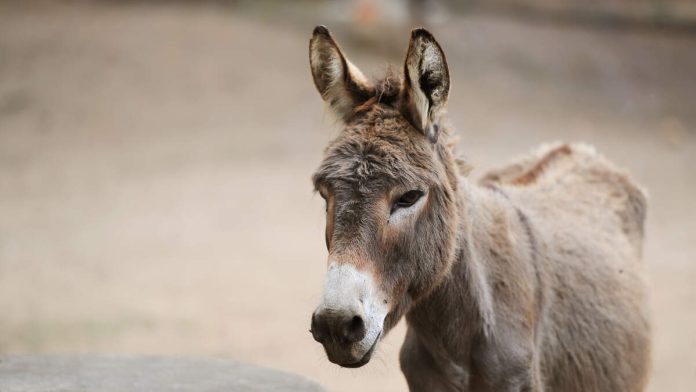In the Inland Empire region of California, wild donkeys face increasing threats from urban development and infrastructure expansion. The nonprofit organization DonkeyLand is seeking assistance as the number of wild donkeys they care for continues to rise, due to shrinking natural habitats caused by housing developments and freeway expansions.
In late October, nearly a dozen donkeys were spotted crossing the SR-60 Freeway in Moreno Valley, prompting a rescue operation by DonkeyLand. Chad Cheatham, the vice president of the nonprofit, assured, “They’re gonna be safe.” However, the incident underscores the growing challenges faced by these animals as their habitats are encroached upon.
The San Bernardino County Department of Public Health previously contracted Peaceful Valley Donkey Rescue, a Texas-based nonprofit, to relocate wild burros from areas like Reche Canyon. However, the contract was terminated due to public outcry and rumors of animal cruelty. Residents of Reche Canyon, who view the donkeys as symbols of a fading rural lifestyle, opposed the relocation efforts. Mark Meyers, executive director of Peaceful Valley Donkey Rescue, mentioned that he received death threats over the issue.
Wild donkeys, technically an invasive species in North America, have proliferated in the West, with significant populations in California, Arizona, and Nevada. In California, the Reche Canyon and San Timoteo Canyon areas are believed to have the largest population of wild burros, estimated at over 1,000. These animals, descendants of donkeys released by ranchers in the 1950s, have become a common sight in the region.
The growing donkey population poses safety concerns. In 2021, six donkeys were killed by a train in San Timoteo Canyon. San Bernardino County Supervisor Dawn Rowe highlighted the dangers, stating, “Countless burros are suffering and dying after wandering onto roadways and railroad tracks.” Local resident Mandy Miller expressed concerns about the safety of Reche Canyon Road, the only route in and out of her community, suggesting infrastructure improvements to accommodate the increasing number of commuters.
DonkeyLand, a nonprofit organization dedicated to rescuing and rehabilitating wild donkeys, is actively seeking support to manage the growing population. They provide a sanctuary for sick, injured, or orphaned animals and rely on donations to continue their work. As urbanization continues to threaten the natural habitats of these donkeys, organizations like DonkeyLand play a crucial role in ensuring their survival.

Recent Comments